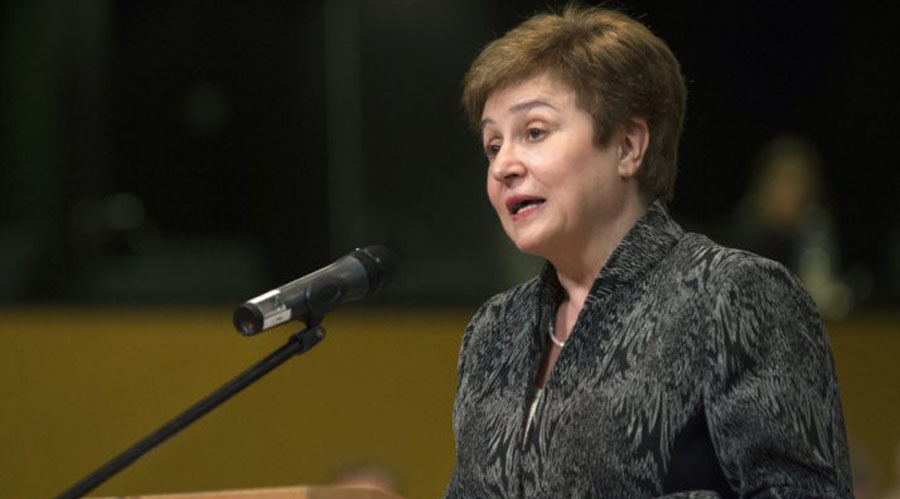
Prolonged Low Rates Pose $19trn Default Risk Globally – IMF
The International Monetary Fund (IMF), has warned that while low rates are desirable for growth, prolonged periods of low rates, as seen in many advanced countries have negative side effects and unintended consequences.
Warning that a major downturn could trigger a $19 trillion corporate debt default, IMF said pension funds and life insurance companies that are taking on more risky investments to meet their return objectives may be hit first.
The newly-appointed Managing Director of IMF, Kristalina Georgieva, in her “Curtain Raiser Speech” ahead of the yearly meetings of the IMF/World Bank Group, made the disclosures.
According to her, since inflation is still subdued in many countries and overall growth is weakening, while in other places, interest rates are already very low or even negative in many advanced economies, there is a need for appropriate and well though-out decisions.
“In our surveillance, we see such an increase of risk taking by investors broadly around the globe. This creates financial vulnerabilities. In some countries, firms are using low rates and building up debt to fund mergers and acquisitions instead of investing.
“Our new analysis shows that if a major downturn occurs, corporate debt at risk of default would rise to $19 trillion, or nearly 40 per cent of the total debt in eight major economies.
“This is above the levels seen during the financial crisis. Low interest rates are also prompting investors to search for higher yields in emerging markets. This leaves many smaller economies exposed to a sudden reversal of capital flows.
“So we need macro-prudential tools. And we can use new approaches to better manage debt, reduce financial booms and busts, and contain volatility,” she said.
Similarly, the IMF chief has said the success of central banks across the world will be anchored on their independence, warning that the bankers must also embrace the culture of clear communications, remain data dependent and nimble when appropriate, with regards to interest rates.
She admitted that central banks around the world are striving to fulfill their mandates under difficult circumstances; hence their independence is the foundation of sound monetary policy.
Independence of central banks is a global best practice that keeps the institutions free of political interferences, to ensure free flow of monetary interventions that are intended to boost economic growth through financial stability.
“But we should state one thing very clearly. Monetary and financial policies cannot do the job alone. Fiscal policy must play a central role,” she said.
Georgieva explained that now is the time for countries with room in their budgets to deploy or get ready to deploy fiscal firepower, adding that low interest rates may give some policymakers additional money to spend, especially in infrastructure.
“That advice will not work everywhere. Globally, public debt is near record levels. So, in countries with a high debt-to-GDP ratio, fiscal restraint continues to be warranted.
“Countries will, of course, tailor policies that work for them. But in every country, reducing debts and deficits should always be done in a way that protects education, health, and jobs.
“And every country needs to wrestle with the question of where, in a rapidly changing world, new sources of growth will come from. I believe focusing on fundamentals can help.
“One way to create more fiscal space is through domestic revenue mobilization. Reducing corruption and utilising digital tools in tax collection can unlock resources and fuel new investments in people. It can also help countries reach the 2030 Sustainable Development Goals,” she added.
